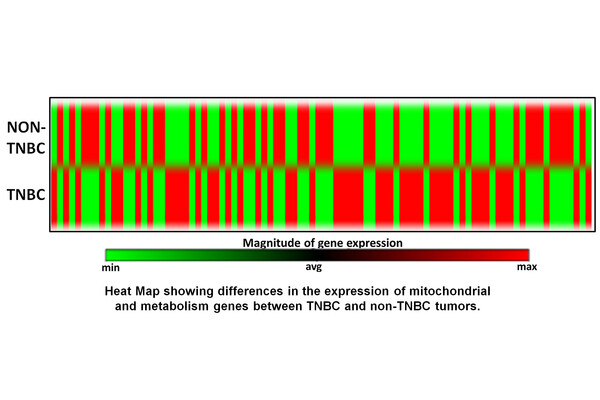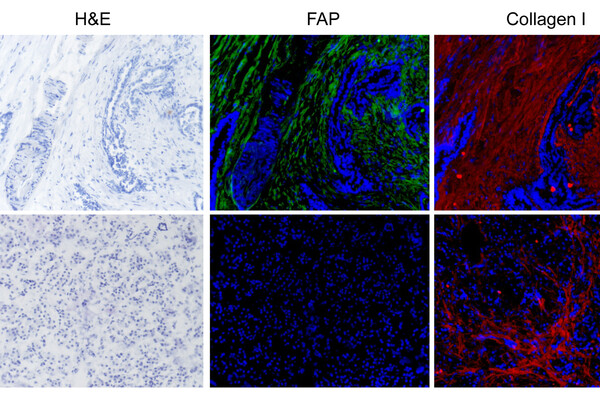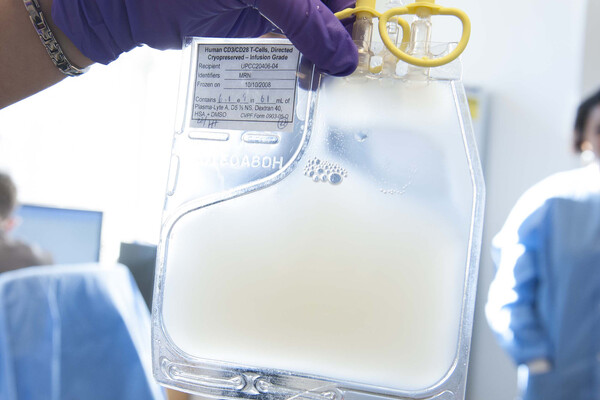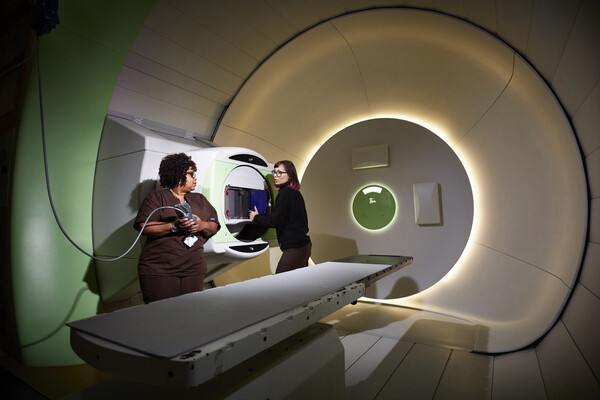11/15
Cancer Research
Study uncovers therapeutic targets for aggressive triple-negative breast cancers
As part of a breast-cancer diagnosis, doctors analyze the tumor to determine which therapies might best attack the malignancy. But for patients whose cancer is triple-negative — that is, lacking receptors for estrogen, progesterone and Her2 — the options for treatment dwindle. Triple-negative cancers, or TNBC, also tend to be more aggressive than other cancer subtypes.
A new hope for treating triple-negative breast cancer
Breast cancer mortality rates have steadily declined over the past few decades, thanks to a combination of early detection and improved treatments. But for patients diagnosed with triple-negative breast cancer (TNBC), a subtype in which tumor cells lack receptors for estrogen, progesterone, and Her2, no targeted treatments are available.
By altering bone marrow, ‘training’ can prepare innate immune system for future challenges
George Hajishengallis of the School of Dental Medicine and an international team of colleagues have found that “training” the immune system causes changes in the precursors of immune cells in the bone marrow. These changes could facilitate a more robust response to future infections or even enable the immune system to regenerate faster after chemotherapy.
Improving oral cancer diagnosis on many fronts
A comprehensive dental visit includes more than a cleaning and X-rays; well-trained dentists know they must also take a thorough look inside the oral cavity to spot any potentially unusual lesions that could signal oral cancer.
Slowing the spread of an insidious cancer
Cancer of the pancreas is rare, but deadly. Research from Penn Vet may slow its spread.
Targeting enzyme in ‘normal’ cells may impede pancreatic cancer’s spread, Penn Vet team shows
Cancer of the pancreas is a deadly disease, with a median survival time of less than six months. Only one in 20 people with pancreatic cancer survives five years past the diagnosis. The reason is the cancer’s insidiousness; tumor cells hide deep inside the body, betraying no symptoms until late in the disease, when the cancer has almost invariably spread to other organs.
Penn Study Links Mutations in Notch Gene to Role in B Cell Cancers
Notch is one of the most frequently mutated genes in chronic lymphocytic leukemia (CLL), the most common leukemia in adults in the United States. It is also often mutated in other common B cell tumors, such as mantle cell lymphoma. However, the role of Notch in these cancers has been uncertain.
Moonshot Grant Will Help Researchers See Two of Cancer’s Key Food Sources at Once
Imagine trying to take a picture of a runner, but only being able to see her feet. If you could see her whole body, you’d get the full picture of how she uses both legs to put one foot in front of the other to reach top speed.
FDA approves personalized cellular therapy for advanced leukemia
Investigators at the Perelman School of Medicine and CHOP, who together led research, development, and clinical trials of the new therapy in collaboration with Novartis, hail the FDA’s approval as a game changer for the treatment of younger patients battling the aggressive blood cancer and a pivotal milestone in this new era of cellular therapies.
Protons with a purpose
As many as 115 patients treated each day. Upwards of 5,000 people who have received life-saving cancer care since 2010. As impressive as these numbers are, the outcomes at the Roberts Proton Therapy Center are even more so.
In the News
Carl June: 2024 will be seen as a breakthrough year for brain cancer
Carl June of the Perelman School of Medicine shares five insights on using CAR T cell therapy to combat cancer, featuring remarks from Bruce Levine.
FULL STORY →
Penn plans to build a proton center for cancer treatment at Presbyterian Medical Center
Penn Medicine will build its fourth proton beam center for cancer treatment at Penn Presbyterian Medical Center in University City.
FULL STORY →
Double mastectomies do not improve breast cancer survival likelihood for most women, study finds
Angela DeMichele of the Perelman School of Medicine says that chemotherapy and hormonal therapies are important for combating breast cancer because they’re designed to kill spreading cells.
FULL STORY →
Breast cancer survival not boosted by double mastectomy, study says
Angela DeMichele of the Perelman School of Medicine comments on a study which found that breast cancer survival is not boosted by a double mastectomy.
FULL STORY →
How did Shannen Doherty die? What to know about ‘90210’ star’s cause of death
According to Penn Medicine, there is no known cure for metastatic breast cancer.
FULL STORY →
New immunotherapy combination could ‘change the landscape’ of cancer treatment
A study by Andy Minn and postdoc Divij Mathew of the Perelman School of Medicine and colleagues found that a combination checkpoint inhibitor therapy benefited patients with lung cancer.
FULL STORY →











